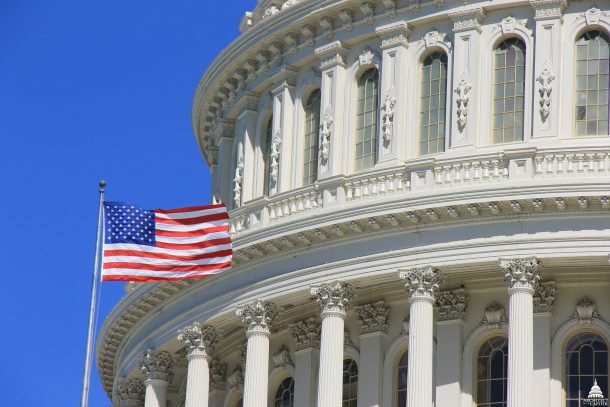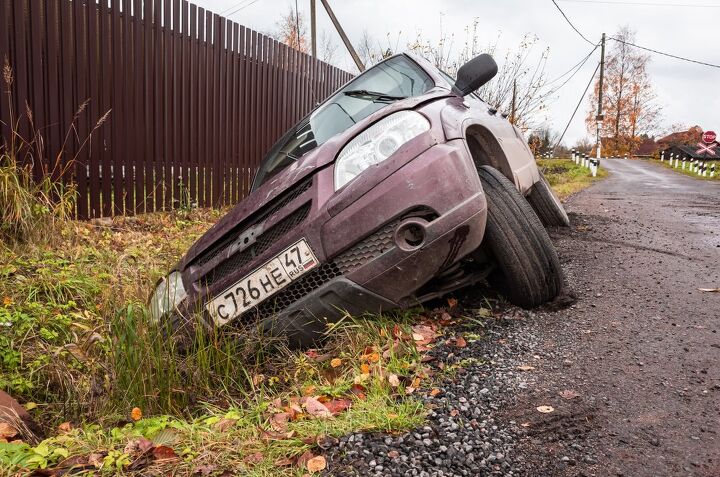#AutomotiveIndustry
New Bill Aims to Boost America's EV Adoption
Representative Debbie Dingell (D-MI) introduced new legislation on Wednesday in a bid to improve the uptake of electric vehicles in the United States. The bill, known as the USA Electrify Forward Act, would appropriate $2 billion annually for the U.S. Department of Energy’s Advanced Technology Vehicles Manufacturing Incentive Program between 2021 and 2035.
Dingell cited a May 2019 AAA survey that reported just 16 percent of Americans as saying they would consider an electric vehicle for their next automotive purchase, claiming something needs to be done address EV pricing, repair costs, and range. The primary focus of the bill is to help in the development and manufacturing of advanced battery technologies and anything else that might help get more Americans into EVs.
Carlos Ghosn Added to Interpol's Most Wanted List, Sans Mugshot
Carlos Ghosn‘s daring escape from the physical boundaries of the Japanese legal system has already been entered into the annals of automotive history and filed under “legendary” status. Guilty or not, the former Nissan executive outdid most Hollywood heist movies by sneaking out of the country while still under government supervision. Nobody in the media can help themselves from discussing it, not even this outlet.
However, he’s far from being free. He’s still wanted in Japan for alleged financial misconduct and the International Criminal Police Organization (Interpol) has issued a Red Notice — which is a global bulletin for authorities to locate and provisionally arrest a person pending extradition, surrender, or similar legal action. Hopefully he’s famous enough for cops to identify from memory, as Interpol neglected to issue an accompanying photograph of the man.
French Tax on Inefficient Vehicles Riles Automakers
Next year, the European Union plans to adopt aggressive new rules that would see automakers fined if their total annual vehicle sales exceed predetermined carbon limits. Obviously automakers aren’t thrilled with the new fines and higher emission mandates, but France is facing additional criticism for its decision to take things a step further.
France’s parliament has adopted a new law penalizing cars that emit carbon dioxide above a certain threshold while still adhering to EU regulations. Vehicles failing to adhere to the French rules will be subject to a 20,000 euros ($22,240) tax in 2020, nearly twice the current fine. Meanwhile, the country is mulling the possibility of culling EV incentives — an odd move, considering its aim to transition its populace to zero-emission vehicles.
Uber Founder Kalanick Vacates Company's Board
Uber Technologies co-founder Travis Kalanick is leaving the company’s board to focus on his new business endeavors in other industries. The company made an announcement on Tuesday, with Kalanick expressing a need to move on.
“Uber has been a part of my life for the past 10 years. At the close of the decade, and with the company now public, it seems like the right moment for me to focus on my current business and philanthropic pursuits. I’m proud of all that Uber has achieved, and I will continue to cheer for its future from the sidelines. I want to thank the board, Dara [Khosrowshahi] and the entire Uber team for everything they have done to further the Uber mission,” Kalanick said in a statement.
Stepping down as CEO in 2017 after a series of wholly unnecessary scandals ( sometimes with Travis at the center), Kalanick stopped managing the company’s daily business. Uber then embarked on an effort to improve its corporate governance, with its better-known founder (apologies to Garrett Camp) being pushed into the shadows. Pressure from investors became overwhelming after he was caught on video arguing with a driver over the company’s pay structure in a period where Uber’s corporate culture was already broadly presumed to be toxic. He was replaced with Khosrowshahi about a month later.
House Passes USMCA Trade Deal, Replacing NAFTA
The House of Representatives approved a new North American trade deal on Thursday, causing many to breathe a sigh of relief. The House vote sends the measure to the Senate, with the probable outcome of it being pushed through.
When is another matter, however, as Senate Republican leader Mitch McConnell said the measure would likely be taken up after an impeachment trial. That means we’ll be waiting until 2020. Still, the U.S. Mexico Canada Agreement (USMCA) is one step closer to replacing the North American Free Trade Agreement (NAFTA). Barring a governmental curveball, the automotive industry now knows what to expect.
Report: Connected Cars Already Know Everything About You
Vehicular privacy is one of those things we never thought we’d have to gripe about but, as automotive connectivity becomes the norm, it’s become one of the most nagging issues in the industry.
Taking a cue from tech giants like Google, Facebook, and pretty much every other website you’ve ever connected to, automakers have begun leveraging customer data on a massive scale. Always-on internet connections exacerbated this problem (feature?), but it’s extremely difficult to tell exactly what kind of information is being shot up into the cloud before ending up at a manufacturer’s data center.
While we’ve seen cars hacked for the purpose of assessing how they’d stand up to malicious entities bent on wreaking havoc, few have attempted to decode the surplus of information emitted by your vehicle. We know this because people would probably be pretty upset to learn of the pathetic level of anonymity currently afforded to them. Despite spending tens of thousands of dollars on a new vehicle, privacy is rarely considered standard equipment.
UAW Fire Update: Still Looking Somewhat Sketchy
The Detroit Fire Department has been going back and forth on the July 13th fire at the United Automobile Workers’ headquarters since its investigation began. Arson was initially on the table before being swiftly ruled out, and the probe continued by private investigators contending with insurance claims, seemingly free of suspicion.
Investigators now believe the fire could have been set intentionally, without attaching any conviction to those claims.
“I was told at the time that they did not think it was arson,” Detroit Fire Department Deputy Commissioner Dave Fornell told Automotive News in an interview from Monday. “That wasn’t a final verdict … When I did some inquiries with the press, I asked investigators and they were saying at that point it was ruled out.”
European Cartel Probe Suspects German Automakers of Illegal Agreements
While Europe appears infinitely suspicious of German automakers, it hasn’t been nearly as eager to cuff suspects and cart them off to the slammer. Considering how unappealing Japan’s treatment of a former Nissan employee happened to be with the general public (regardless of his guilt/innocence), that’s probably wise. Slow and sure is the ideal strategy for tackling corporate corruption — it just has the unfortunate consequence of dragging everything out.
In 2018, BMW, Daimler, and Volkswagen Group became the focus of an investigation aimed at uncovering illegal cooperation. Allegations going back to 2017 stipulated the three had coordinated on the rollout of clean emissions technology (specifically AdBlue); at the same time, Germany was under heavy scrutiny for the leeway it was giving automakers after VW’s diesel emission scandal. Before long, claims arose that Germany’s manufacturers had been effectively running an automotive cartel for decades, with supporting evidence slowly mounting.
Can EVs Go the Distance? EU Approves 3 Billion Battery Development Fund
The European Union has approved a 3.2 billion-euro fund to promote the research and development of battery technology, with cash pouring in from Belgium, Finland, France, Germany, Italy, Poland and Sweden. While Brussels has been on an electrification push ever since Europe fell out of love with diesel, now may not be the best time to double down on EVs.
We recently covered China’s ailing automotive market, noting the poor performance of new energy vehicles (which fell by at least 40 percent vs the previous November). We’ve also covered a survey showing how eager the nation’s consumer base appeared to be to purchase them, with both writer and readership wondering how reliable those figures actually were. Our collective dubiousness appears to have been valid. Despite being the top region for EV sales, new data from Bernstein Research claims about 70 percent of the 1.2 million electric or gasoline-electric hybrid models sold in China over the past year went directly to government or corporate fleets. When the government started removing subsidies, sales plummeted with little private interest to soften the impact.
Europe may be on a vaguely similar path. While worldwide EV sales are up about 13 percent through October, sales in North America are down 2 percent (at 301,000 deliveries), with Europe rising 37 percent (to 395,000). That’s partially due to European cities being closer together (with more charging points between them), though most EU member states also offer various electric vehicle purchasing incentives and tax exemptions. They’ve likewise adopted stricter environmental rules that make EVs more appetizing to own in the future.
Chinese Auto Market Still Struggling, but There's Good News for Japan
China’s car market, officially the world’s largest, is bracing for its second year of negative growth. November was the fourth consecutive month of declining year-over-year sales, representing an improvement from October despite volume dropping 4.2 per cent below last November’s tally. Unfortunately for China, the downward trend has not been the exception, but the rule.
According to the Hong Kong based South China Morning Post, the China Passenger Car Association (CPCA) was hoping for better. “The market failed to live up to expectations of a strong rebound in November,” said Cui Dongshu, secretary general of the CPCA. “Consumer demand remained weak as people are reluctant to spend on big-ticket items due to worries about a bleak economic outlook.”
This matters in the West because domestic manufacturers have bent over backwards to try and improve sales within the region, expending no small amount of energy or capital in the process. China’s citizenry are also changing their tastes to cope with a weakening economy, and it would be wise to look at the choices they’re making.
GM Leaves Russia, Bought Out by AvtoVAZ
Russia’s largest automotive manufacturer, AvtoVAZ, announced Monday that it plans to buy General Motors out of its regional joint venture. The duo previously assembled Chevrolet-branded automobiles for the local market; however, GM lost interest after the market took a turn for the worse.
While sanctions from Western nations and falling oil prices upended Russia’s economy a few years ago, it was already headed for hard times. Wages have stagnated and average citizens no longer possess the same level of buying power they held a decade earlier. The Russian Economic Development Ministry predicts just a 1-2 percent growth rate up to 2030 and leadership doesn’t seem terribly interested in improving the situation for the citizenry, deciding instead to raise taxes on just about everything. GM was probably right to get out.
Vehicle Content Rules Still Slowing North American Trade Deal
Replacing the North American Free Trade Agreement (NAFTA) has proven difficult for the Trump administration. Trade negotiations have progressed slowly, with Mexico, Canada, and the United States rarely seeing eye-to-eye on most issues. Some of the biggest problems have dealt with content requirements.
The latest hangup stems from a rule requiring 70 percent of the steel and aluminum found in North American vehicles to come from the same continent in order to ensure a duty-free existence. Mexico isn’t keen on the proposal — as it sources a large amount of metal from Brazil, Japan and Germany. Meanwhile, the United States is attempting to use the inclusion to appease the United Steelworkers union and keep labor-focused jobs in the country.
Survey: EV Interest Varies Wildly Between Nations, Ditto for Shared Ownership
If you follow the automotive industry at all, you’re undoubtedly aware that the United States is a region that hasn’t quite embraced automotive electrification on the same level as the rest of the developed world. Americans travel longer distances and have particular tastes, making EVs more popular in places like Europe and China. It also hasn’t passed the same sweeping regulations to ensure their advancement.
Whatever the cause, a new survey from London-based OC&C Strategy Consultants attempted to tabulate the disparity — asking 2,000 consumers (apiece) in the U.S., China, Germany, France and United Kingdom between March and April of 2019.
Their findings? Only about half of the surveyed Americans felt EVs were worth their consideration as a potential successor to their current ride. In China, 90 percent said they would seriously consider buying electric. Between 64 and 77 percent of respondents in Europe said the same (depending on country).
Auto Industry Eliminating Jobs to Support Electric Vehicle Tech: Report
With environmentalism sweeping through the automotive industry of late, manufacturers are spending oodles of cash to fund the continued development of electric vehicles. Unfortunately, the are doing this during a period where the developed world’s taste for cars has already reached its zenith — or so it seems. Growth is slowing in markets across the globe and cuts have to be made somewhere if the industry players want to keep their bottom line positioned firmly in the black.
A recent report from Bloomberg, estimated that around 80,000 auto jobs will be eliminated in the coming years as a result of electrification — with the majority concentrated in the United States, Germany, and United Kingdom. Though the onslaught of cuts will not be limited to the developed world, nor entirely the fault of EVs.
UAW Not Cooperating in Corruption Probe, Says U.S. Attorney
United States Attorney for the Eastern District of Michigan, Matthew Schneider, has said new details about the ever expanding UAW corruption probe have been trickling in. But he’s also criticizing the union for not providing adequate cooperation throughout the multi-year investigative process. Schneider indicated there was new evidence included additional details of malfeasance from former UAW President Gary Jones shared by the union in November. While the prosecutor did not offer details, he said it was the type of information that should have been reported to his office, not publicly.
Automotive News surmised he was likely referencing details released late last month by the union’s executive board in an effort to remove Jones and Region 5 Director Vance Pearson. That report included allegations that Jones let his daughter use a UAW-rented townhouse in Palm Springs, California. Sources familiar with the situation have confirmed that the union publicly released information against the two at roughly the same time it was handed it over to the U.S. attorney’s office.






























Recent Comments